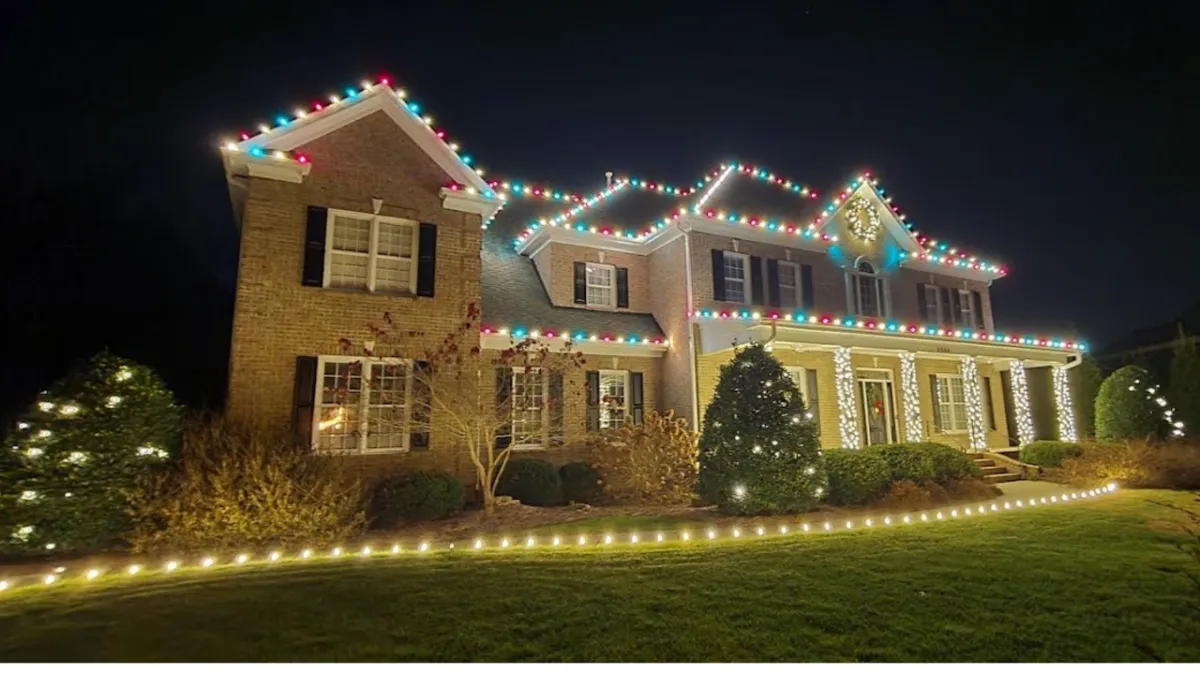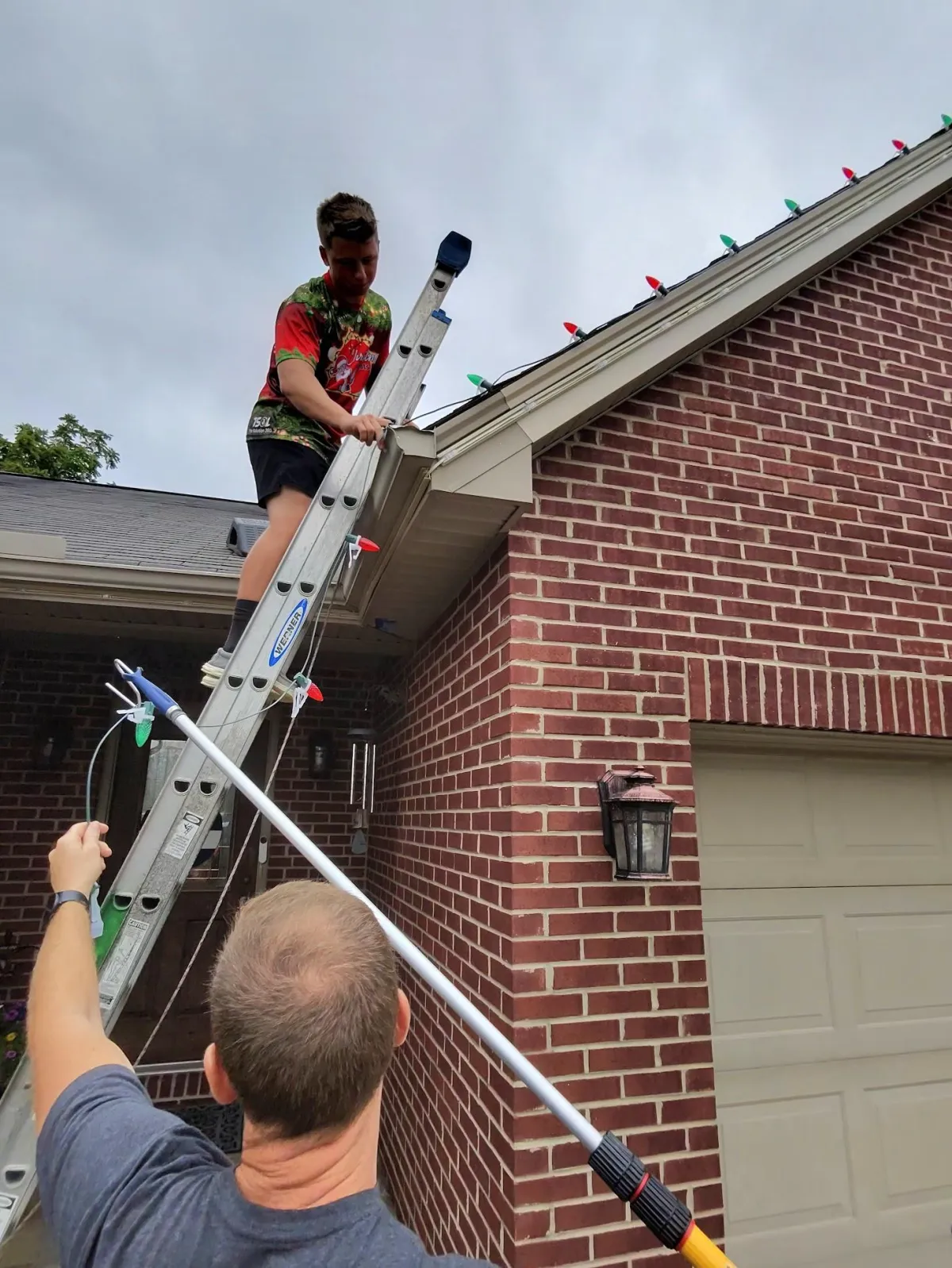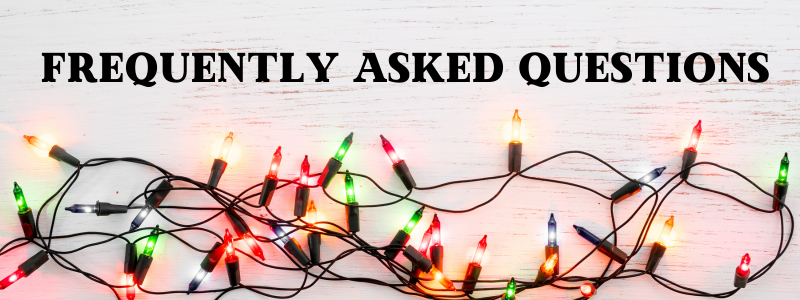Find Trusted Christmas Light Installers
Near You
Designing the perfect Christmas light display can be an exciting yet challenging task, requiring both creativity and attention to detail. To help you achieve the holiday ambiance you desire, we’ve partnered with the top Christmas light installers across the country. These professional and reliable Christmas light installers are available right in your state, ensuring that your home or business shines brightly throughout the season.


Whether you’re looking to create a dazzling winter wonderland or a more subtle, elegant display, our network of expert Christmas light installers is committed to bringing your festive vision to life with exceptional care and precision. From design and installation to maintenance and removal, these professional Christmas light installers cover every aspect of your Christmas light installation.
Why Choose a Professional Christmas Light Installer?
Hiring a professional Christmas light installer ensures that your holiday decorations are safely and beautifully arranged, taking the hassle out of the process for you.
Our trusted installers offer:
Expert Design Consultation: Our professional Christmas light installers get personalized design advice to match your aesthetic preferences and home architecture.
Safe and Efficient Installation: Trained professional Christmas light installers ensure that your Christmas lights are securely installed, adhering to the highest safety standards.
High-Quality Materials: Our top Christmas light installers use top-tier LED Christmas lights and decorations that are both durable and energy-efficient.
Maintenance and Support: Should any issues arise during the Christmas season, ourprofessional Christmas light installers are on hand to provide quick fixes and adjustments.
Removal and Storage: Once the holidays are over, your professional Christmas light installer will safely remove and store the Christmas lights, ensuring they’re ready to shine again next year.
Find a professional Christmas light installer near me
We’ve made it easy for you to find a professional Christmas light installer in your area. Simply select your state from the list below to view a directory of trusted professional Christmas light installers who are ready to help you create the holiday display of your dreams.
Discover Expert Tips on Our Blog

Stay Safe on Steep Roofs: Essential Equipment and Footwear
As professional Christmas light installers, our work brings joy and beauty to homes during the holiday season. However, it's crucial to remember that our job involves significant risks, particularly when working at heights. This comprehensive guide will explore essential safety practices, tools, and strategies to ensure you and your team stay safe while delivering exceptional service.
The Importance of Safety in Christmas Light Installation
Safety should always be your top priority in the Christmas light installation business. No matter how much money you make or how efficient you become, all of that means nothing if you or a team member gets injured on the job. Falls from roofs can result in severe injuries or worse, and they can happen in the blink of an eye.
Remember, you're not just responsible for your own safety, but also for the safety of your team members. By implementing and consistently following proper safety protocols, you protect your health, your business, and your employees.
Common Hazards in Christmas Light Installation
Before we dive into safety practices, let's review some common hazards you might encounter:
1. Slippery surfaces: Roofs can be slick due to morning frost, rain, or moss growth.
2. Steep pitches: The steepness of a roof can make it challenging to maintain balance.
3. Weather changes: Conditions can change rapidly, making a previously safe situation dangerous.
4. Electrical hazards: Working with electrical equipment outdoors always carries risks.
5. Ladder accidents: Improper ladder use is a common cause of injuries.
6. Fatigue: Long hours during the busy season can lead to decreased alertness.

Essential Safety Equipment
Having the right safety equipment is crucial. Here are some must-have items:
Safety Harness
A properly fitted safety harness is your most important piece of safety equipment. It should be worn whenever you're working at heights. Make sure to inspect your harness before each use and replace it if you notice any wear or damage.
Roof Anchors
Roof anchors provide a secure point to attach your safety harness. The Ridge Pro is a popular option, but remember that it's only OSHA approved as an anchor when properly bolted to the roof.
Proper Footwear
Good footwear is essential for maintaining grip on various roof surfaces. Consider these options:
1. Cougar Paws: Designed specifically for roof work, these shoes provide excellent traction.
2. Fila Memory Foam Work Shoes: Some installers find these provide even better grip than Cougar Paws.
3. Hey Dude shoes: Another option worth testing for roof work.
Ladder Stabilizers
Ladder stabilizers help prevent your ladder from slipping or falling. They're especially important when working on uneven ground or approaching gutters.
Specialized Tools for Safe Installation
Several specialized tools can help make your work safer and more efficient:
The Goat
The Goat is a popular tool that hooks over the roof peak, providing a stable point to hold onto while working. While not OSHA approved as a safety device on its own, it can significantly improve your stability and confidence on the roof.
Pitch Hoppers
Pitch Hoppers are another useful tool for working on steep roofs. They provide a stable platform to kneel or stand on. Remember, when using a Pitch Hopper, either have all your weight on it or none at all. Putting only part of your weight on it can cause it to slip.
Rope Systems
For very high or challenging roofs, a rope system can provide an extra layer of safety. This involves running a rope over the peak of the house and securing it to a sturdy anchor point (like a large tree) on the opposite side. However, only use this method if you're trained in proper knot tying and rope safety techniques.

Safe Work Practices
Having the right equipment is only part of the equation. Safe work practices are equally important:
Assess the Roof Before Starting
Before you start any job, take the time to carefully assess the roof. Look for:
1. Signs of wear or damage on shingles
2. The pitch of the roof
3. Potential slip hazards like moss or frost
4. Stable areas for placing your ladder
Plan Your Movements
Don't start working until you have a clear plan. Know where you'll move, where you'll place your tools, and how you'll access different areas of the roof. Having a plan reduces the likelihood of making risky moves on the fly.
Use the Right Ladder Technique
When using a ladder:
1. Ensure it's on stable, level ground
2. Maintain three points of contact at all times
3. Don't overreach - move the ladder instead
4. Use ladder stabilizers for extra security
Always Use Fall Protection
Even if you feel comfortable on a roof, always use proper fall protection. This typically means wearing a safety harness attached to a secure anchor point.
Be Weather Aware
Check the weather forecast before starting work and be prepared to reschedule if conditions are unsafe. Be especially cautious of:
1. Rain or snow, which can make surfaces slippery
2. High winds, which can affect your balance and make ladder use dangerous
3. Extreme temperatures, which can affect your physical performance
Take Regular Breaks
Fatigue can significantly increase your risk of accidents. Take regular breaks, stay hydrated, and don't push yourself beyond your limits, especially during busy periods.

Training Your Team
If you have a team, proper training is crucial:
1. Provide comprehensive safety training before allowing anyone to work on roofs
2. Regularly review and update safety procedures
3. Encourage team members to speak up about safety concerns
4. Lead by example - always follow safety procedures yourself
Consider creating a safety checklist that team members must complete before starting each job. This can help ensure that no important safety steps are missed.
Emergency Preparedness
Despite our best efforts, accidents can still happen. Be prepared:
1. Always have a fully stocked first aid kit easily accessible
2. Ensure all team members know basic first aid
3. Have an emergency plan for what to do if someone falls
4. Keep emergency contact numbers readily available
Remember, if someone falls while wearing a harness, they need to be rescued quickly to avoid suspension trauma. Have a plan for how you would safely get someone down in this situation.
Leveraging Technology for Safety
Modern technology can help enhance your safety practices:
Safety Apps
Consider using safety-focused apps that can help you track and manage safety procedures. Some apps can even send automatic alerts if a worker falls or remains motionless for too long.
Weather Apps
Use reliable weather apps to stay informed about changing conditions that could affect your work safety.
Project Management Software
While not directly safety-related, good project management software can help you avoid overbooking, which can lead to rushed work and increased risk.

The Business Case for Safety
Prioritizing safety isn't just about avoiding accidents - it's good business:
1. It reduces the risk of costly injuries and workers' compensation claims
2. It can lower your insurance premiums
3. It enhances your reputation as a professional, responsible business
4. It improves employee morale and retention
Remember, one serious accident can potentially bankrupt your business. The time and money invested in safety measures are always well spent.
Continuous Improvement in Safety
Safety isn't a one-time achievement - it's an ongoing process:
1. Regularly review and update your safety procedures
2. Stay informed about new safety equipment and best practices
3. Encourage feedback from your team about safety concerns
4. Conduct "near miss" analyses to learn from close calls
Consider joining professional associations related to holiday lighting or exterior services. These can be great sources of up-to-date safety information.
In the Christmas light installation business, safety should always be your top priority. By using the right equipment, following safe work practices, properly training your team, and staying prepared for emergencies, you can significantly reduce the risks associated with our work.
Remember, no job is worth risking your health or life. If a situation feels unsafe, it probably is. Don't be afraid to turn down jobs that you can't complete safely, and never cut corners on safety to save time or money.
By prioritizing safety, you protect yourself, your team, and your business. You also demonstrate professionalism and care to your clients, which can lead to better reviews, more referrals, and long-term success in the Christmas light installation industry.
Stay safe out there, and may your holiday season be merry, bright, and incident-free!

1. Q: What is the most important piece of safety equipment for Christmas light installation?
A: The most important piece of safety equipment is a properly fitted safety harness. It should be worn whenever working at heights and inspected before each use. Replace it immediately if you notice any wear or damage.
2. Q: Are tools like The Goat and Pitch Hoppers OSHA-approved safety devices?
A: No, tools like The Goat and Pitch Hoppers are not OSHA-approved safety devices on their own. While they can significantly improve stability and confidence on the roof, they should be used in conjunction with proper fall protection equipment like a safety harness and anchor point.
3. Q: What type of footwear is best for roof work during Christmas light installation?
A: Good options for roof work include Cougar Paws (designed specifically for roof work), Fila Memory Foam Work Shoes (which some installers find provide even better grip), and Hey Dude shoes. The key is to choose footwear that provides excellent traction on various roof surfaces.
4. Q: How often should I inspect my safety equipment?
A: You should inspect all your safety equipment, including harnesses, ropes, and anchors, before each use. Look for signs of wear, damage, or degradation. If you notice any issues, replace the equipment immediately.
5. Q: What should I do if the weather changes suddenly while I'm on a job?
A: If weather conditions change suddenly and become unsafe (e.g., rain, high winds, or extreme temperatures), it's best to stop work immediately and safely descend from the roof. Safety should always be prioritized over completing a job.
6. Q: How can I ensure my team follows proper safety procedures?
A: To ensure your team follows proper safety procedures: provide comprehensive safety training before allowing anyone to work on roofs, regularly review and update safety procedures, encourage team members to speak up about safety concerns, and lead by example by always following safety procedures yourself. Consider implementing a safety checklist that must be completed before each job.
7. Q: What should be included in an emergency plan for Christmas light installation?
A: An emergency plan should include steps for what to do if someone falls, how to rescue someone suspended in a harness, the location of the nearest hospital, emergency contact numbers, and the location of first aid supplies. All team members should be familiar with this plan.
8. Q: Is it necessary to use fall protection on every roof, even low-pitched ones?
A: Yes, it's recommended to use fall protection on every roof, regardless of the pitch. Even on low-pitched roofs, unexpected factors like weather conditions or a misstep can lead to falls. It's always better to err on the side of caution when it comes to safety.
9. Q: How can technology help improve safety in Christmas light installation?
A: Technology can enhance safety through safety-focused apps that help track and manage safety procedures, reliable weather apps to stay informed about changing conditions, and project management software to avoid overbooking which can lead to rushed work and increased risk.
10. Q: What are the business benefits of prioritizing safety in Christmas light installation?
A: Prioritizing safety can reduce the risk of costly injuries and workers' compensation claims, potentially lower insurance premiums, enhance your reputation as a professional and responsible business, and improve employee morale and retention. Additionally, it can prevent a serious accident from potentially bankrupting your business.
Copyright ©2024 All Right Reserved website designed by christmaslights.io
Terms of Service / Privacy Policy
Have questions or need assistance?
Contact us at (855)619-LITE


